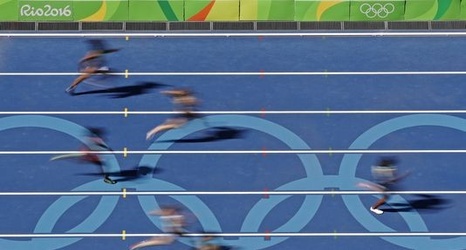RIO DE JANEIRO (AP) — The young athlete, now competing at the Rio Games, always considered herself to be a girl just like the others, a girl who loved to run. Then the governing body of track and field told her she was different, so different that her track career could be over.
Marked "confidential" and signed "best sporting regards," the letter outlined a choice for the athlete: Open herself up to a panel of medical experts who could recommend surgery or chemical treatment to reduce her testosterone levels, or stop competing.
She had fallen foul of the International Association of Athletics Federations' rules aimed at providing a fair playing field for women by keeping out athletes with high testosterone, a naturally occurring strength-building hormone.
